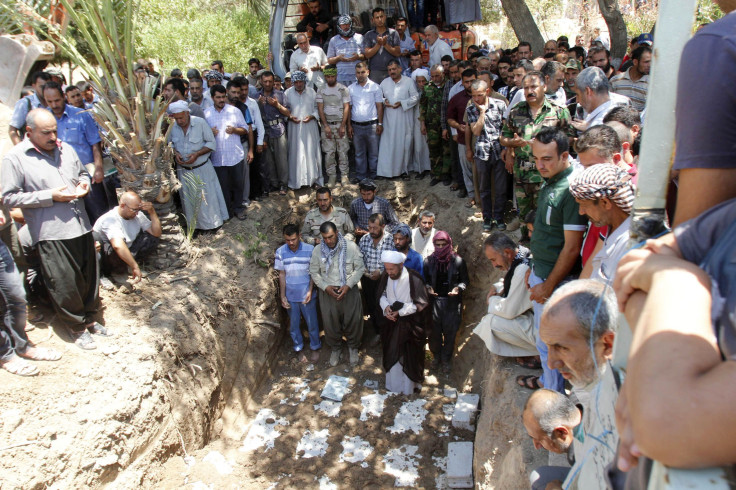ISIS Brutally Attacks Northern Iraqi Shiite Villages

In the early hours of June 18, residents living in the small, rural villages outside of Kirkuk on the Iraqi Kurdistan border woke to the sound of gunfire. For days, they had feared that soldiers associated with the Islamic State of Iraq and Syria (ISIS), the Sunni militant group attempting to create an Islamic caliphate, would return to the region. Though the group had been marching toward Baghdad to fight government forces for control of the capital, not all of its forces were focused on that goal. Many of them were back in Kurdish territory and local inhabitants of these villages, mostly Shiite Turkmen, have been prime targets.
ISIS has almost silently infiltrated rural villages in the north in between taking over key cities near the capital, connecting Syria and Iraq by bulldozing a border crossing and seizing two towns on Tuesday near Jordan. Somehow, amid the international concern about the increasing presence of Islamic extremism in the Middle East, these small villages, which have felt the full wrath of the ISIS insurgency, have been largely forgotten.
Their takeover, though, is key as it signals that perhaps the Kurdish military, or the peshmerga, does not have the capacity to stop ISIS by itself. Secretary of State John Kerry met with Kurdish President Masoud Barzani Tuesday and asked the semiautonomous government to support Baghdad in its fight against ISIS. But with the peshmerga already stretched thin, it seems unlikely it will be able to help Baghdad more than it already has. In many ways, the peshmerga is under attack by ISIS just as much as the capital is, as it has failed this week to protect the people living in its own region, particularly in the villages near Kirkuk.
As early as June 16, villagers near Tuz Khurmato began to flee to Kirkuk because of Sunni militants infiltrating the area. Peshmerga located at an outpost on the outskirts of the town said last week that ISIS had taken over a village nearby, one located within eyesight of the outpost, and everyone living there had fled. The next day, on June 17, ISIS attacked the town of Basheer and surrounding villages, as reported by the International Business Times.
Peshmerga soldiers were dispatched to fight the militants, but fled once the Iraqi military began dropping bombs. Since then, the peshmerga have not been able to re-enter the town to count the number of people who died, but officials reported that six soldiers had been killed in the fighting.
The attack on Basheer and its surrounding villages marked the first time that ISIS had attempted to take over a predominantly Shiite area. (Shiite Turkmen, an ethnic minority who speak their own language and live throughout the country, make up a large portion of the villages.) Until then, it relied on the support of Sunni families to help it take control of key cities.
The ISIS siege in the north, though relatively far removed from the Baghdad discussion, has caused hundreds of civilian deaths. On Tuesday, the United Nations reported that more than 1,000 people had been killed in Iraq since the beginning of June -- a direct result of the Sunni militant group sweeping across the country. Rupert Colville, a U.N. human rights spokesman, told a group of reporters that at least 757 civilians were killed and 599 injured in the northern provinces of Nineveh, Diyala and Saladdin from June 5 to 22.
On Monday, the Washington Post reported that villagers in Taza, Iraq, a town just outside of Kirkuk, buried 15 bodies in a mass grave. All had been executed by rebels that wanted to destroy Shiite Turkmen communities.
Residents of Tuz Khurmato held mass funerals this week for local villagers who had been killed in the fighting.
© Copyright IBTimes 2024. All rights reserved.





















